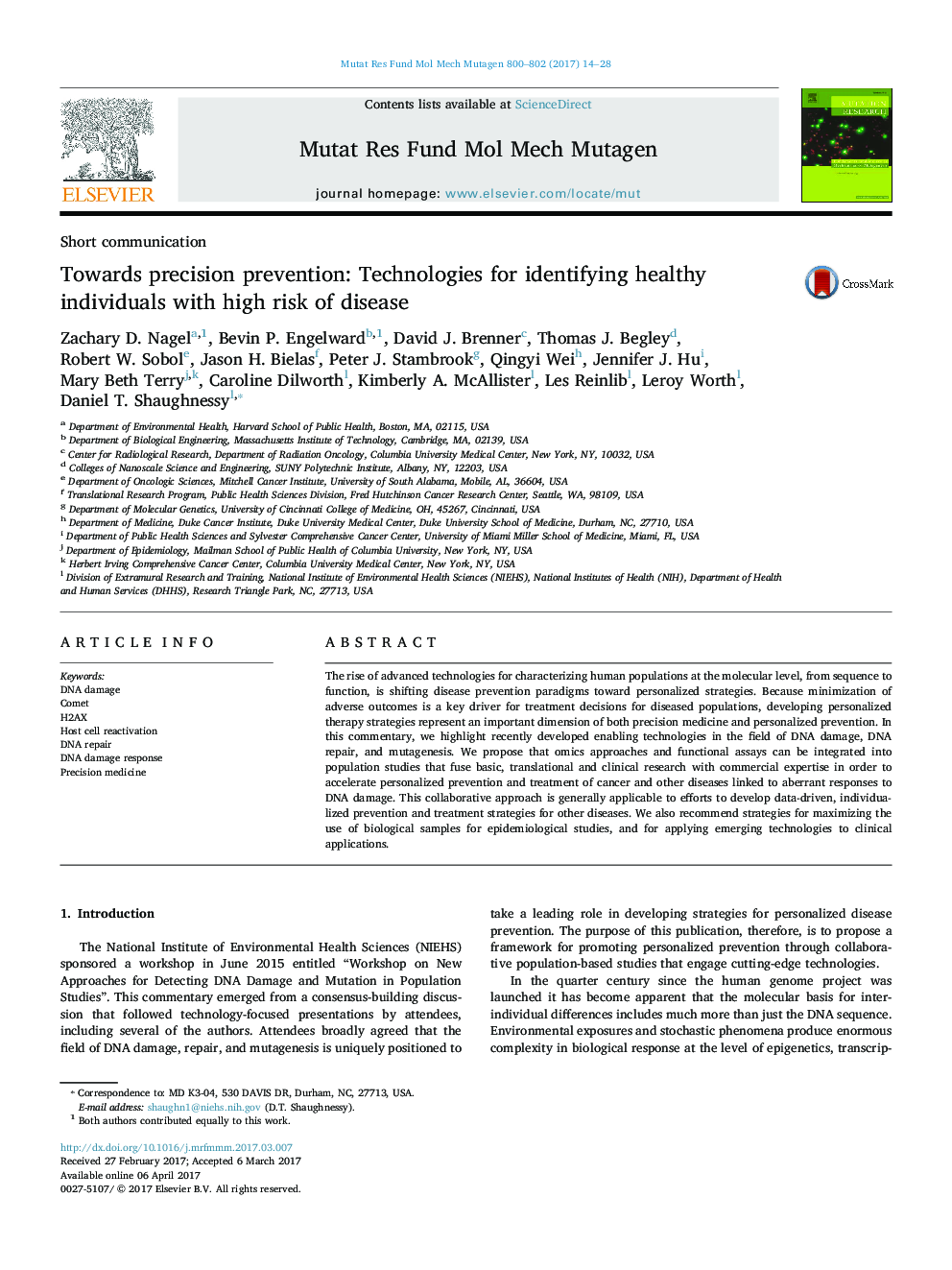| Article ID | Journal | Published Year | Pages | File Type |
|---|---|---|---|---|
| 5528708 | Mutation Research/Fundamental and Molecular Mechanisms of Mutagenesis | 2017 | 15 Pages |
The rise of advanced technologies for characterizing human populations at the molecular level, from sequence to function, is shifting disease prevention paradigms toward personalized strategies. Because minimization of adverse outcomes is a key driver for treatment decisions for diseased populations, developing personalized therapy strategies represent an important dimension of both precision medicine and personalized prevention. In this commentary, we highlight recently developed enabling technologies in the field of DNA damage, DNA repair, and mutagenesis. We propose that omics approaches and functional assays can be integrated into population studies that fuse basic, translational and clinical research with commercial expertise in order to accelerate personalized prevention and treatment of cancer and other diseases linked to aberrant responses to DNA damage. This collaborative approach is generally applicable to efforts to develop data-driven, individualized prevention and treatment strategies for other diseases. We also recommend strategies for maximizing the use of biological samples for epidemiological studies, and for applying emerging technologies to clinical applications.
Graphical abstractDownload high-res image (107KB)Download full-size imageFrom traditional assays (center) to today's tools for population studies (yellow). Author names indicate their contributions to the content areas covered in this commentary. The impact of new technologies emerges through their integration into population studies (orange circle). Collaborative studies that fuse the expertise of multiple investigators across basic and applied disciplines will have the greatest impact.
